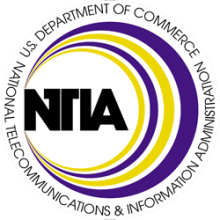Image


With time and resources scarce and applications to review from nearly 2,200 entities, favoring vendors was less complicated because they wrote savvier proposals and required less follow-up, in Winogradoff's view.Private companies were able to submit savvier proposals and generally swamp the system with far more proposals, slowing the entire process because the federal agencies did not expect the volume. NTIA claimed they wanted to make the funds more widely available and instead shut out much of the public sector. NTIA, along with most federal agencies, simply does not understand that a "level playing field" between private companies and the public sector is simply not possible. The public sector has different interests - maximizing social benefits whereas the private sector is interested in generating profits. Public and private entities are different creatures, operating in different regulatory environments, with divergent motivations. You can no more create an objectively level playing field between the two than one could in designing a contest between basketball and soccer teams. The rules are simply going to favor one or the other. The question becomes, who should the rules favor? When it comes to infrastructure and tax dollars, the rules should favor those who put the public interest first. This was the lesson of the Rural Electrification Administration, which was horrified at the idea of lavishing grants on profitable companies in the hopes they would temporarily invest in rural areas. Instead, they offered loans to cooperatives and extended electricity to farms across the country during the worst Depression in our history. What have we learned from that? Nothing. We contort our policies while offering more and more money to companies that time and time again show they have no interest in serving rural America. This is ludicrous - not only have we already built a wire out to almost every home in America, we still have the polls! We should ramp up loans - not grants unless absolutely necessary - to rural cooperatives, nonprofits, and other publicly-oriented organizations that put the common good first. This is a long term solution to a very serious infrastructure problem. Publicly owned fiber networks would offer faster services at lower prices -- ensuring all Americans would benefit from this communications revolution. The second round of stimulus learned nothing from the first. We might hope the FCC National Broadband Plan does better, but the real solution is for your community to consider how it can best invest for its future.
